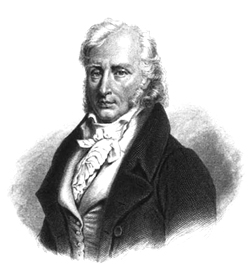Liberty Matters
Constant, Tocqueville, and Ersatz Religion

Given that Alan Kahan's most recent book (Tocqueville, Religion, and Democracy: Checks and Balances for Democratic Souls [Oxford: Oxford University Press, 2015]) analyzed Tocqueville's views on religion, and Bryan Garsten ended his last comment by invoking the author of Democracy in America, it might be in order to revisit how close or different Constant and Tocqueville were on the nature and role of religion in modern society. It goes without saying that they took religion quite seriously (albeit from two different perspectives, Catholic and Protestant); in this regard they joined other major French thinkers from Necker and Chateaubriand to Guizot. Both Constant and Tocqueville shared a similar concern that citizens living in modern democratic society might become entirely absorbed in material affairs; they also feared that people might thus come to neglect the spiritual and transcendent aspects of life. For both, religion was not an irrational relic of the past. On the contrary, they believed that we would have to reckon with religion in the future precisely because religious ideas and symbols would continue to fill our spiritual longings.
Yet there are also important differences between them on this point, and I would like to raise one of them here. Tocqueville claimed that in modern society equality and individual autonomy are held as dogmas and that faith in common opinion slowly becomes the new faith of democratic nations. "The majority is the prophet; you believe it without reasoning," he wrote. "You follow it confidently without discussion.… The moral dominion of the majority is perhaps called to replace traditional religion to a certain point or to perpetuate certain ones of them, if it protects them. But then religion would live more like common opinion than like religion. Its strength would be more borrowed than its own.… This authority is principally called religion in aristocratic centuries. It will perhaps be named majority in democratic centuries, or rather common opinion." (Democracy in America, 2010, III: 720, note p; all emphasis added.)
As far as I can see, the idea that modern democracy might become itself a new form of religion sui generis by displacing the locus of authority did not appear in Constant's works. Such an ersatz form of religion would have never satisfied his innermost longings.
Copyright and Fair Use Statement
“Liberty Matters” is the copyright of Liberty Fund, Inc. This material is put on line to further the educational goals of Liberty Fund, Inc. These essays and responses may be quoted and otherwise used under “fair use” provisions for educational and academic purposes. To reprint these essays in course booklets requires the prior permission of Liberty Fund, Inc. Please contact oll@libertyfund.org if you have any questions.